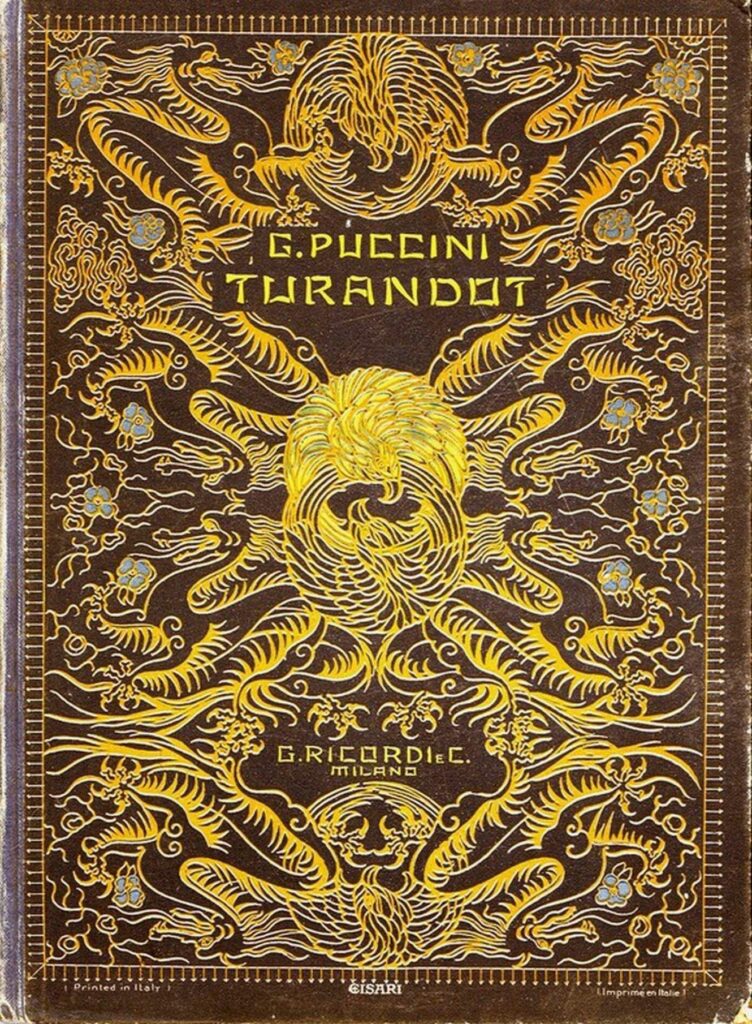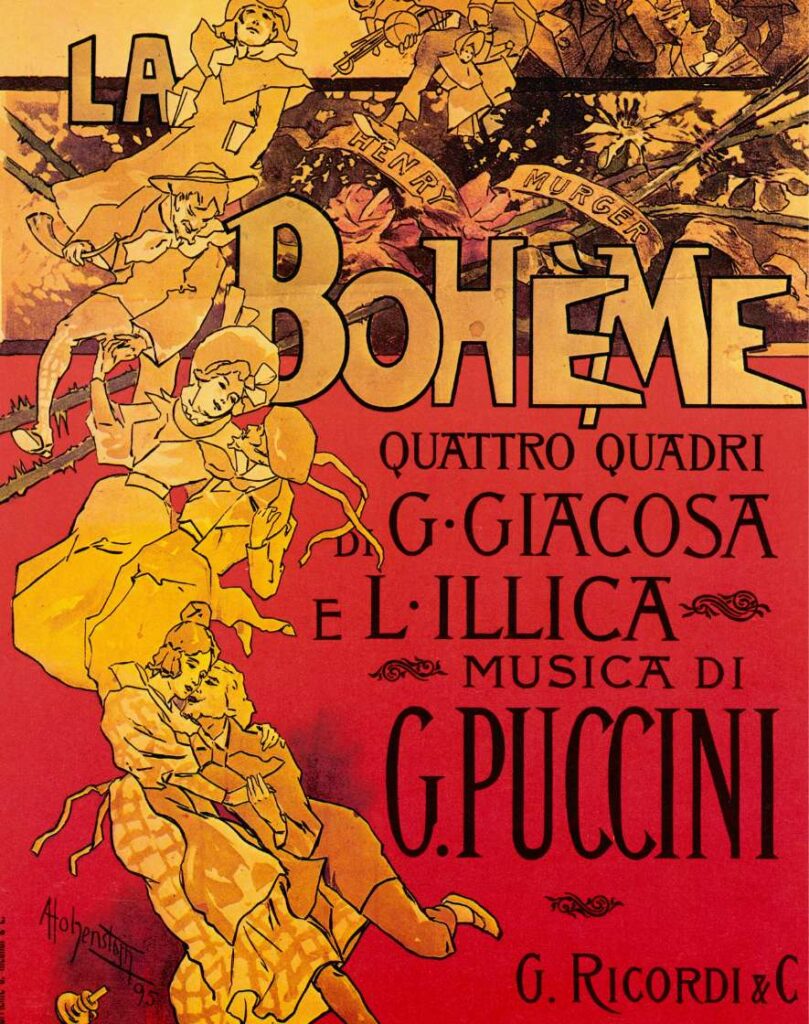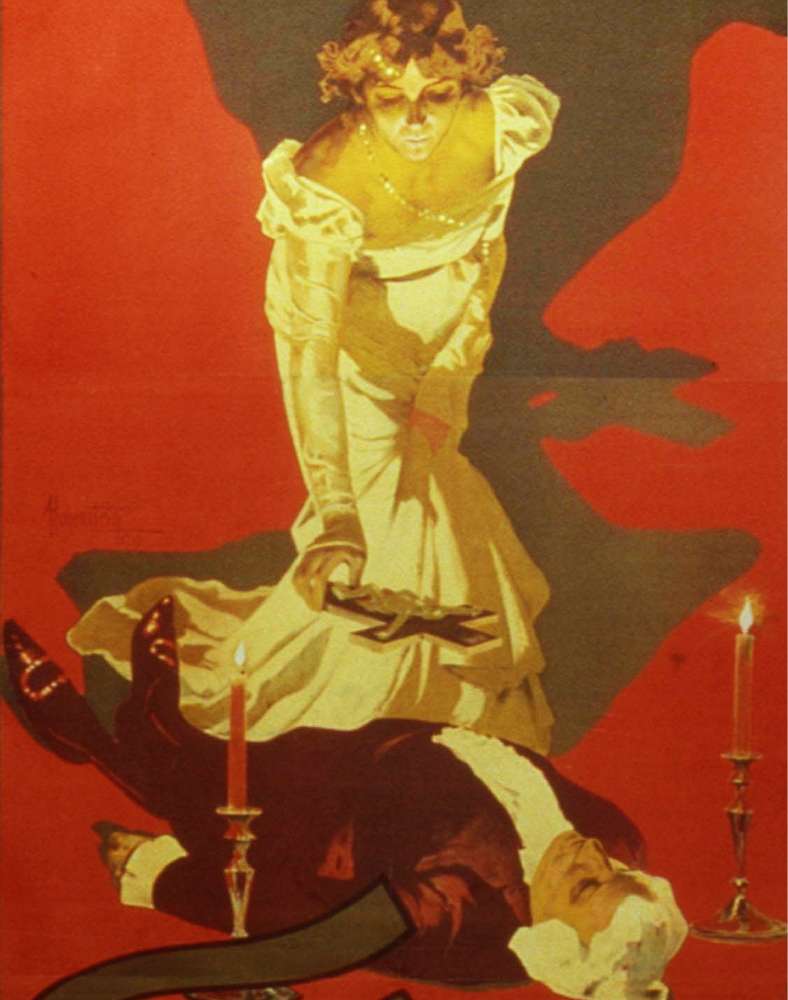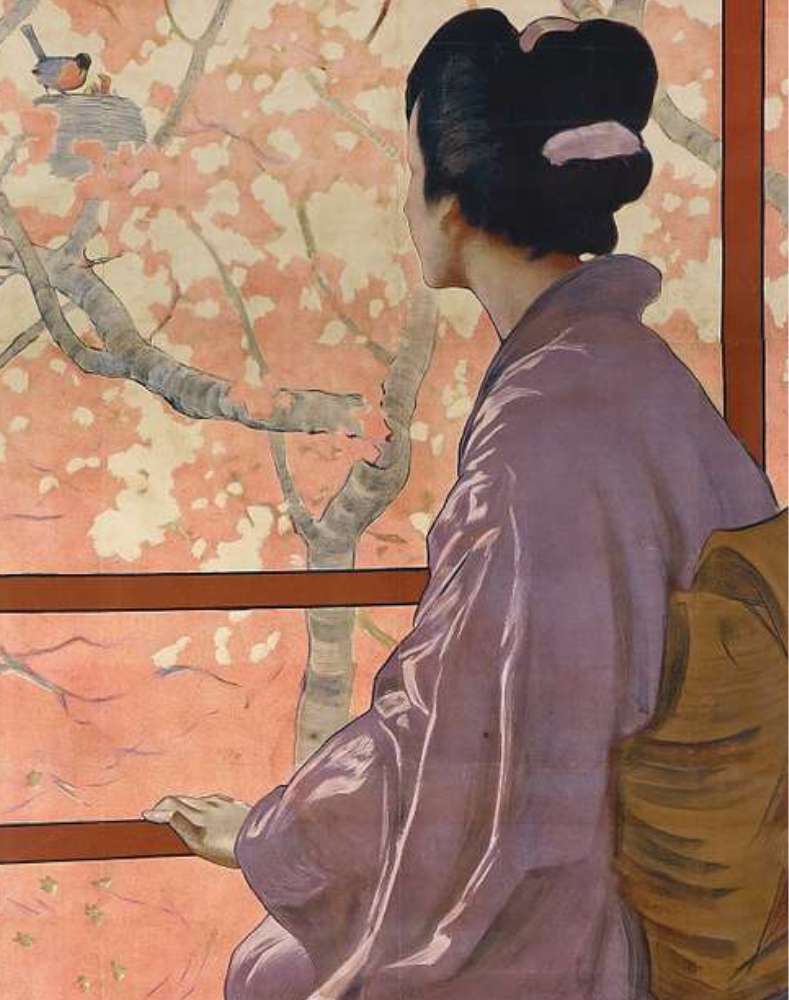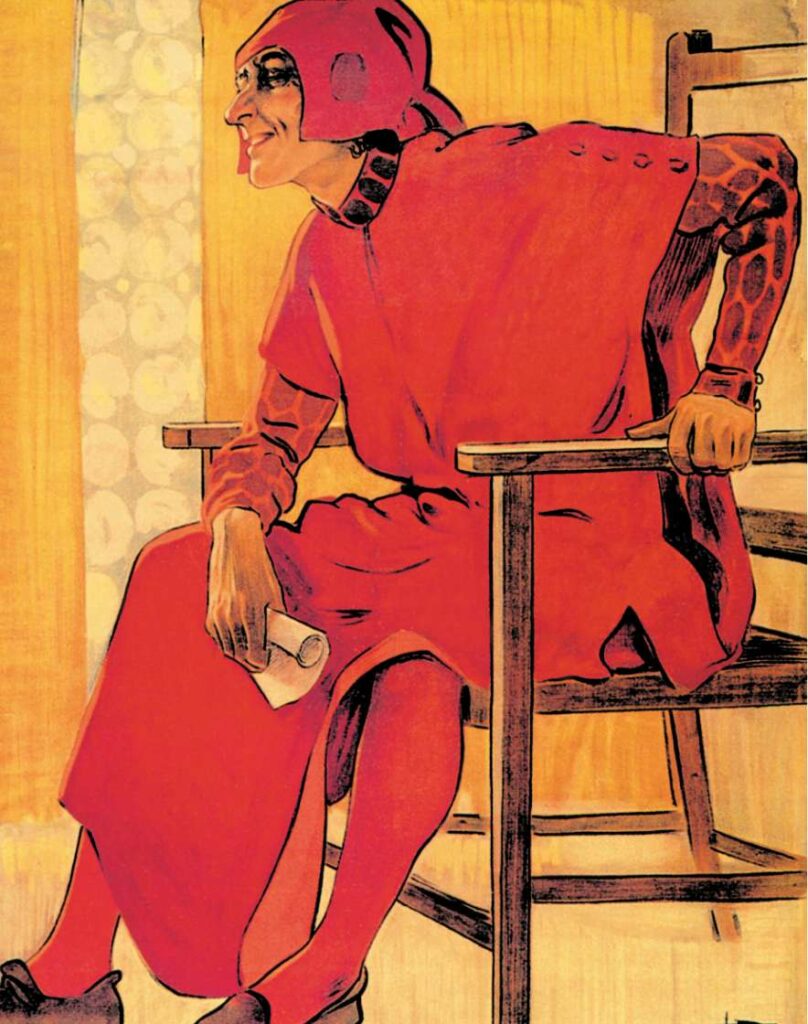Turandot
Performed for the first time on 25 April 1926 at Milan’s Teatro alla Scala
Opera in three acts and five scenes
Composers: Giacomo Puccini and Franco Alfano
Libretto by Giuseppe Adami and Renato Simoni
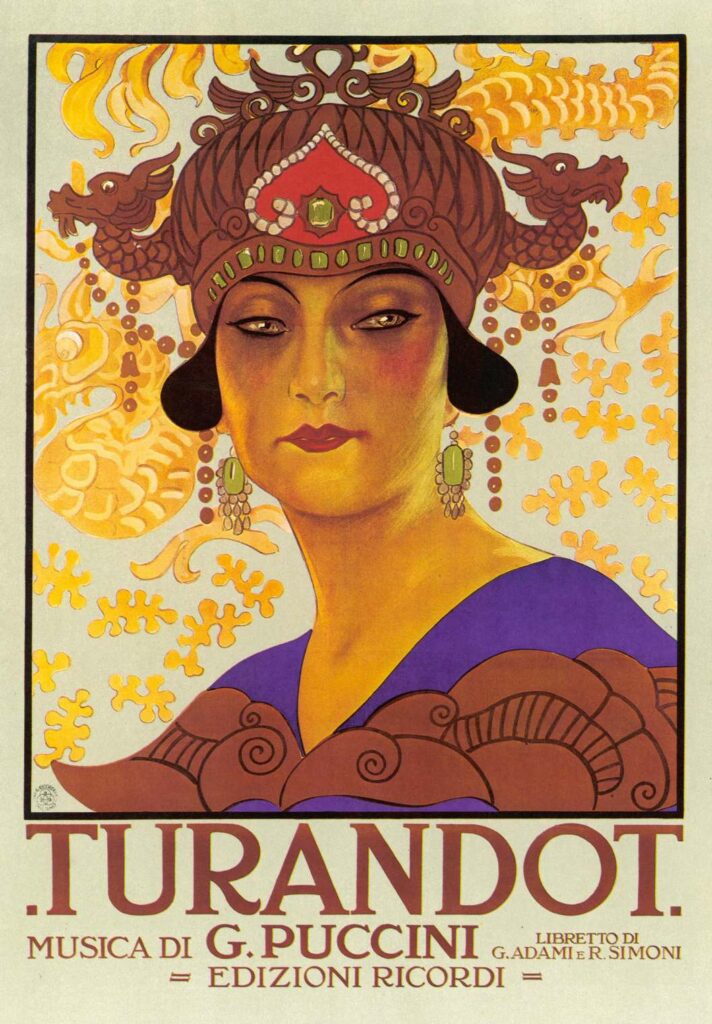
Plot outline:
This opera reflects the Maestro’s overwhelming urge to move away from bourgeois drama and tackle the enigmatic subjects that had fascinated him for a long time. The subject, drawn from Gozzi’s mythic play of the same name, was suggested by Simoni during a dinner: “Giacomo, I’ve got an idea. What about Gozzi? … What if we got our teeth into a really good mythic story like that, something unusual, fantastical and bizarre?”
And Giacomo Puccini’s exceptional unfinished opera was born, with Franco Alfano completing the final scenes after Puccini’s death.
“Turandot” is characterised by scenes with extraordinary visual impact, magnificent choruses and moments of intense emotion. The work features innovative dramatical and musical elements. The use of the chorus creates a feeling of a lack of intimacy, caused by the crowding of the stage at climactic moments
Liù’s poetic personality captures the audience’s attention, distracting them from Turandot’s coldness, until she transforms into a woman in love in the finale. The poignant death of Liù is a touching moment that makes the princess’s metamorphosis less moving. Although the young slave girl’s feelings may be simple, the sacrifice she makes for love is seen as a powerful gesture by Calaf.
The transformation that Turandot undergoes is what caused Puccini to slow down in his writing of the opera – how can such a frosty woman become loving and tender? He was tormented by this conclusion to the very end. During his hospital treatment in Brussels, he took with him 36 pages of manuscript, consisting of memos and scores, hoping to finish the opera while convalescing. He never did.
Listen to “Nessun dorma” from Act III on Spotify
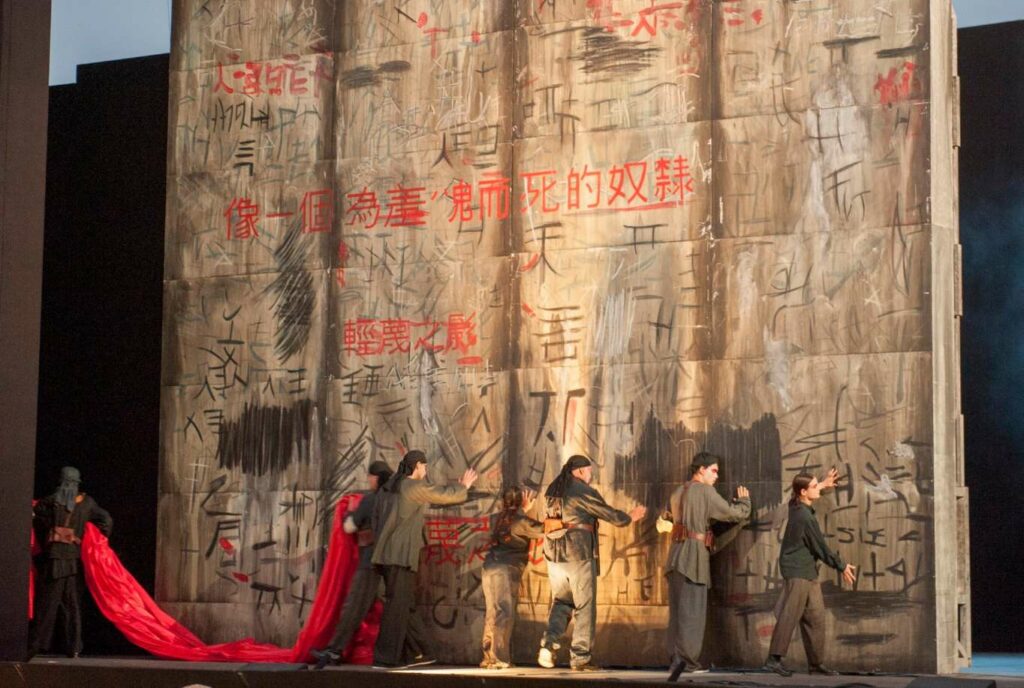
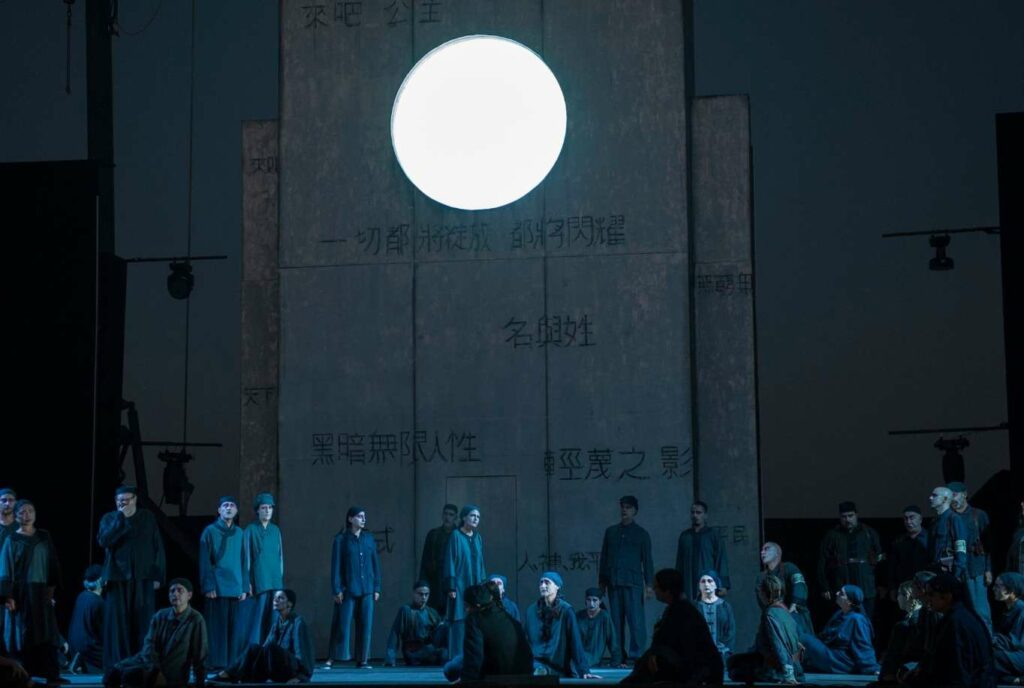
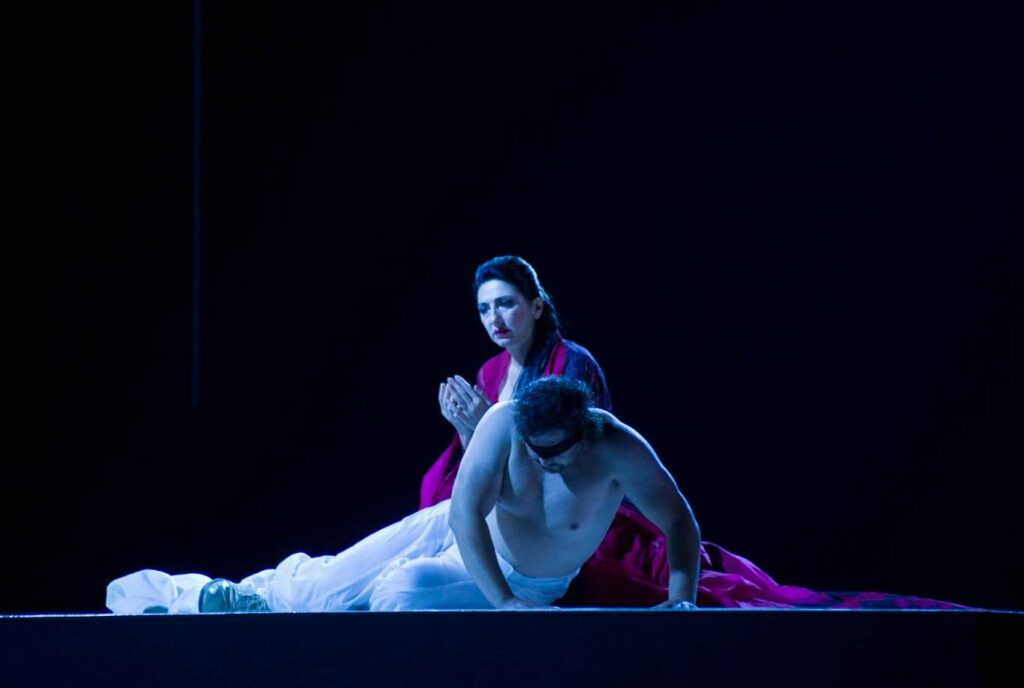
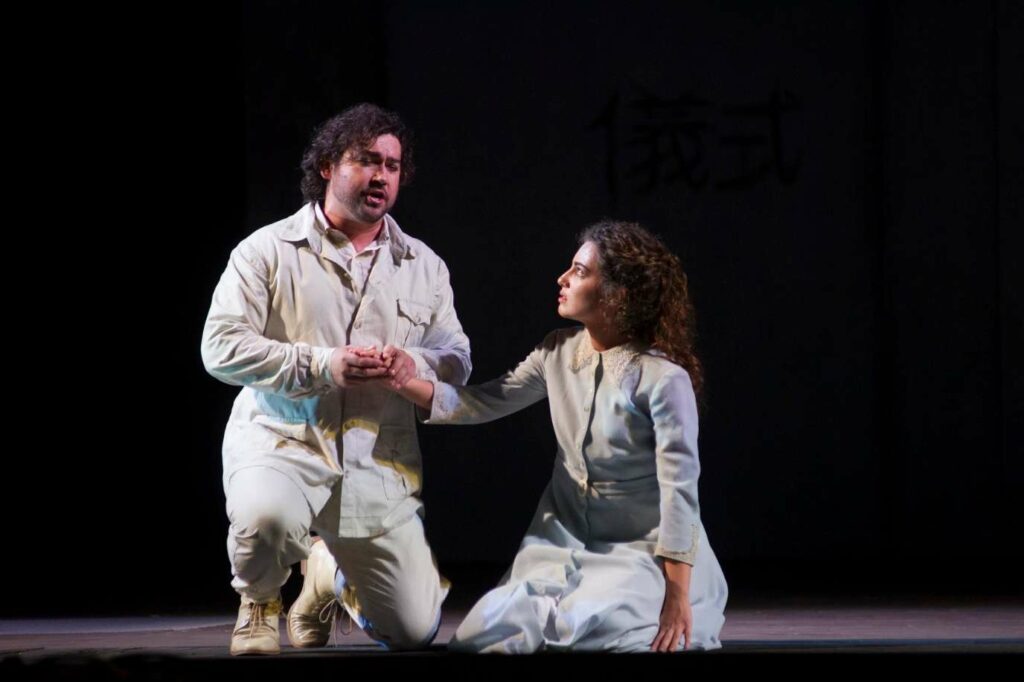
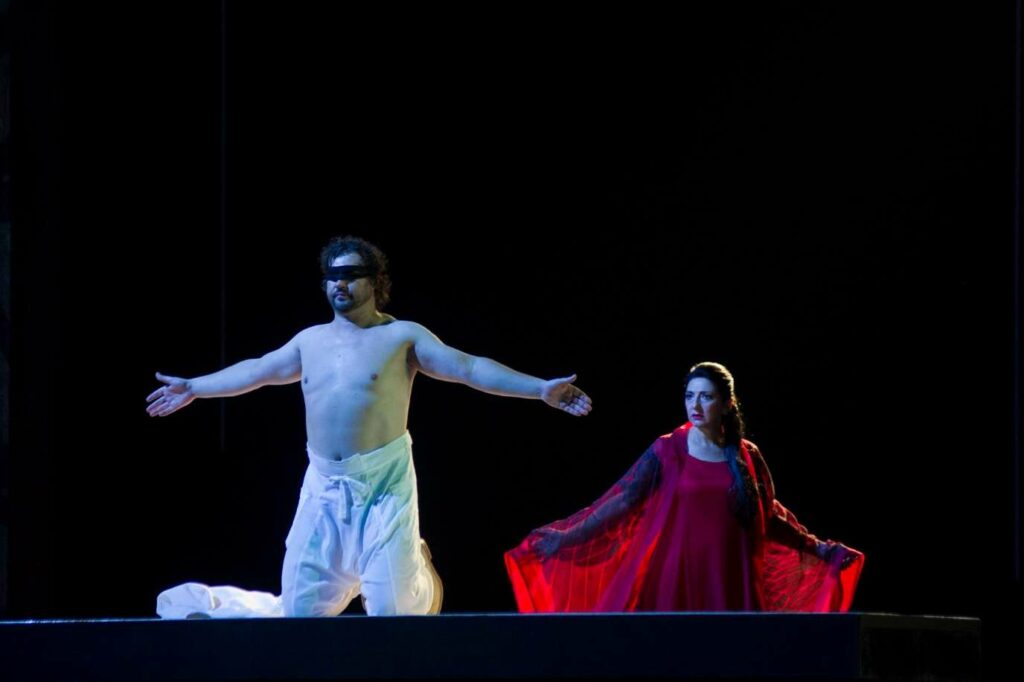
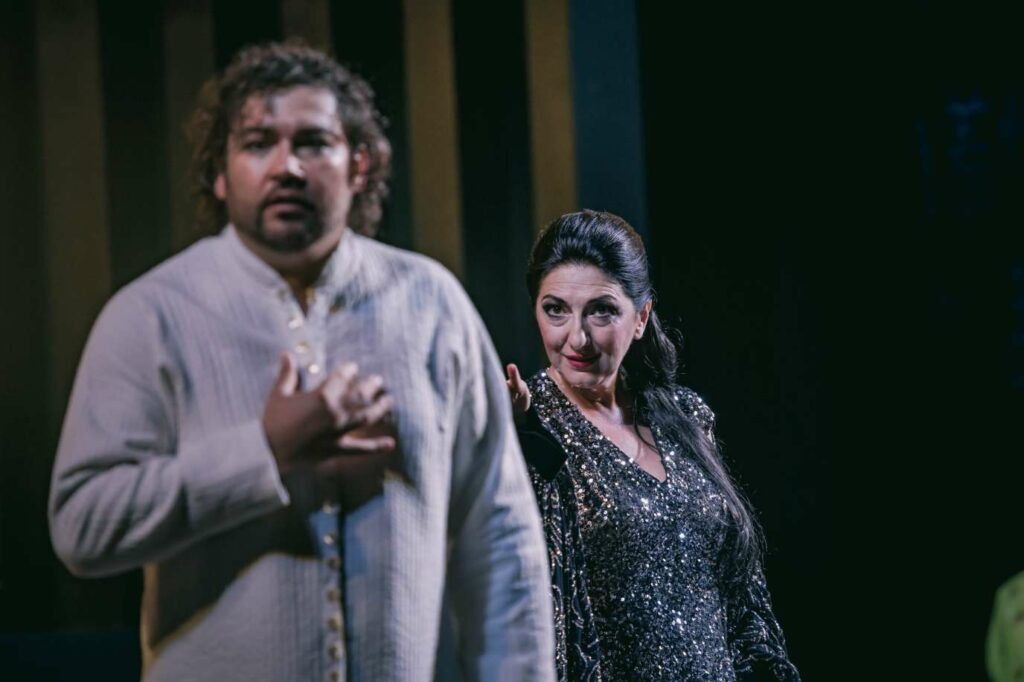
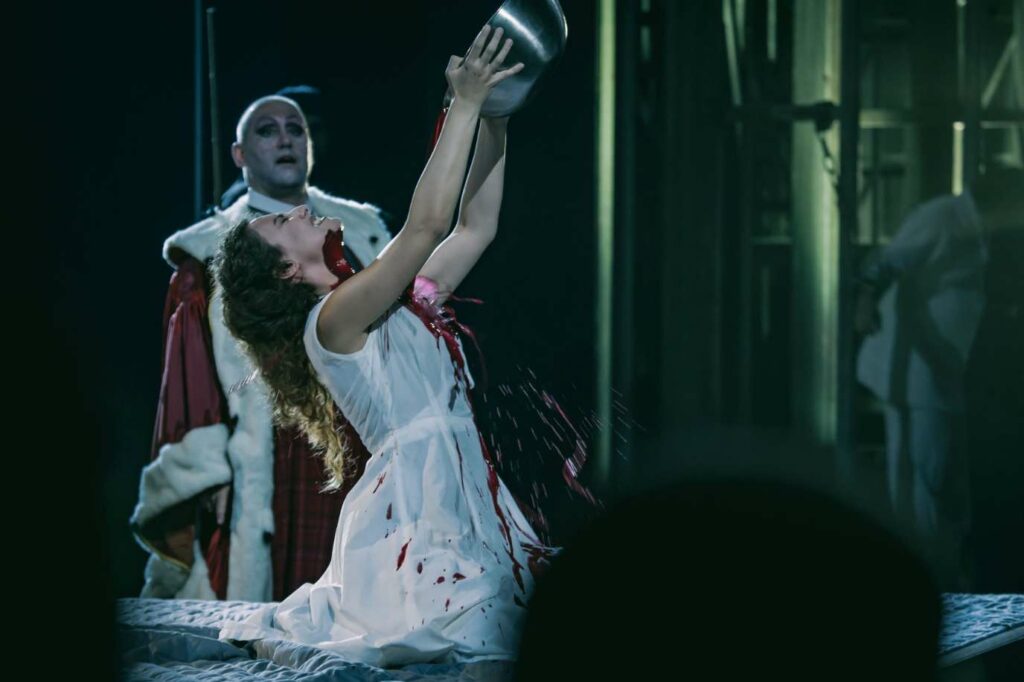
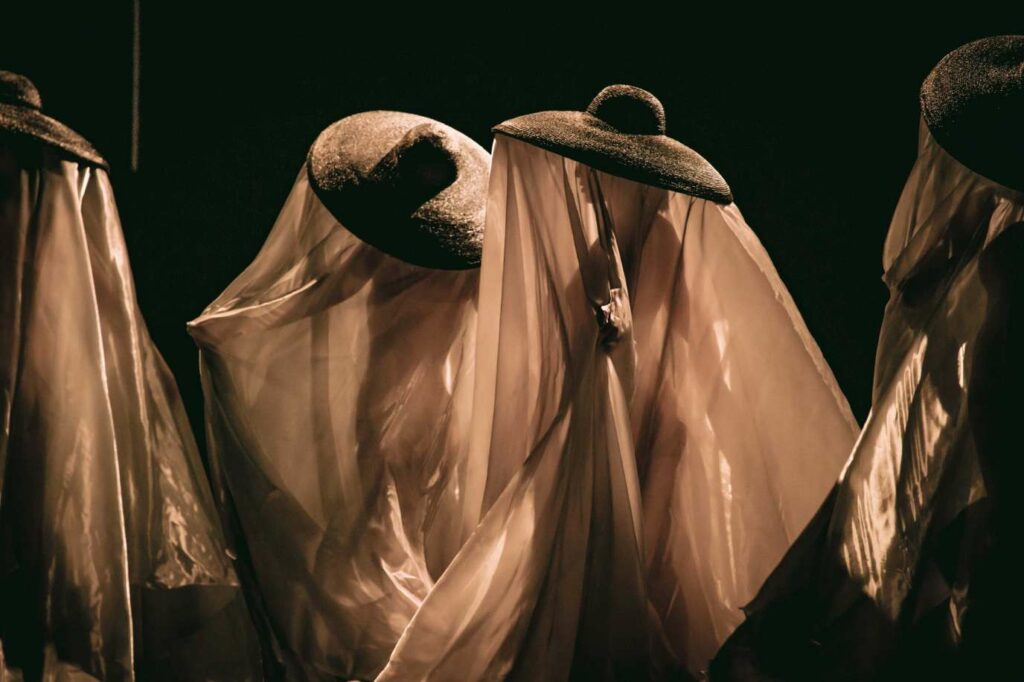
Photo: puccinifestival.it
